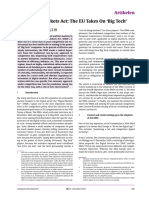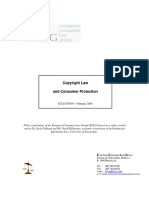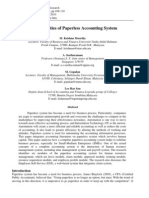0% found this document useful (0 votes)
17 views20 pagesDigital Markets - Lecture 07
The document provides an overview of a course on EU competition law and digital markets. It outlines 10 topics that will be covered in the course, including characteristics of digital markets, challenges in digital markets, case studies, and the Digital Markets Act. It also provides timelines and details on obligations for gatekeepers under the Digital Markets Act.
Uploaded by
xiuyanglyuCopyright
© © All Rights Reserved
We take content rights seriously. If you suspect this is your content, claim it here.
Available Formats
Download as PDF, TXT or read online on Scribd
0% found this document useful (0 votes)
17 views20 pagesDigital Markets - Lecture 07
The document provides an overview of a course on EU competition law and digital markets. It outlines 10 topics that will be covered in the course, including characteristics of digital markets, challenges in digital markets, case studies, and the Digital Markets Act. It also provides timelines and details on obligations for gatekeepers under the Digital Markets Act.
Uploaded by
xiuyanglyuCopyright
© © All Rights Reserved
We take content rights seriously. If you suspect this is your content, claim it here.
Available Formats
Download as PDF, TXT or read online on Scribd
/ 20























































































